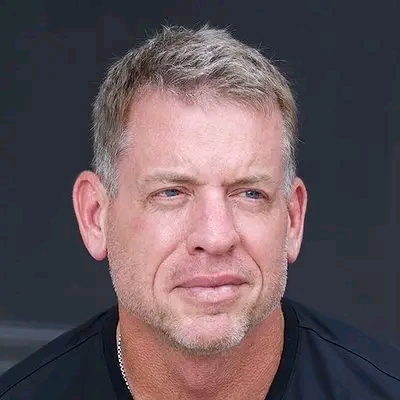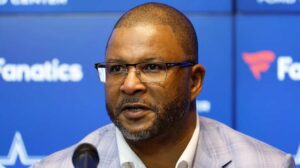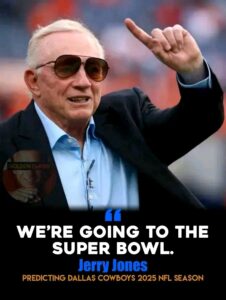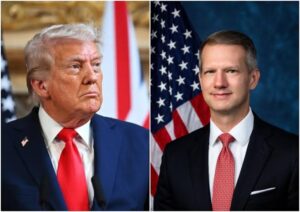
Troy Aikman Affirms: “Dallas Cowboys Ownership Fully Supports Current Head Coach,” Dismisses Criticism of Lack of Empowerment

In a surprising turn of events during a
recent Monday Night Football broadcast,
legendary Dallas Cowboys quarterback
Troy Aikman addressed the ongoing
debate regarding the team’s ownership
and coaching dynamics. Countering
previous narratives that have suggested
a lack of empowerment for the head
coach under Cowboys owner Jerry Jones,
Aikman firmly asserted that the current
ownership structure is indeed supportive
of its coaching staff and their strategies.
This declaration comes on the heels of
criticism asserting that the absence of
effective leadership has lingered since
the departure of former head coach
Jimmy Johnson.
Aikman’s comments were noteworthy not just because of his deep connection to the Cowboys organization, but also due to the weight his words carry among fans and analysts. For years, the discussion surrounding the Cowboys has often centered around the perceived tension between ownership and coaching, with many believing that Jerry Jones has too much influence over football operations. However, Aikman aimed to reframe the narrative, stating that the current head coach, regardless of who it may be, receives significant empowerment and backing from ownership.
“A lot of people like to point fingers at ownership, claiming that they don’t allow the head coach to operate freely,” Aikman said during the broadcast. “I think that’s a mischaracterization. What I see is a situation where the head coach has resources and support to build the team and implement his vision. The successful teams understand how to collaborate, and I believe that’s what the Cowboys are trying to achieve.”
His remarks suggest a shift in perspective within the Cowboys’ narrative, which has long been overshadowed by the fond memories of Johnson’s tenure. Johnson, who led the Cowboys to two Super Bowl victories in the early ’90s, is often cited as a coach who had complete authority and autonomy. Since his departure, the Cowboys have cycled through a series of coaches, with each facing questions about their control over the team’s direction.
Many fans and analysts have pointed to the struggles the Cowboys have faced over the past two decades, labeling the team as “underachievers” given their talent level. While Aikman acknowledged that the organization has not made it back to the Super Bowl during this span, he emphasized that this does not necessarily correlate with a lack of ownership support for the coaching staff.
“Winning in the NFL is incredibly challenging. There are numerous factors at play,” Aikman added, noting the competitive landscape of the league. “You can point fingers and make excuses, but at the end of the day, it comes down to executing on the field. Ownership can give you the tools, but the players and coaches are the ones who need to make it happen.”
Aikman’s comments reflect a more positive outlook, indicating that the current coaching staff is equipped with the necessary resources to succeed. This is significant for Cowboys fans, who have often been left frustrated by coaching changes and inconsistent performances. His statements perhaps aim to instill confidence within the fanbase that the ownership is indeed making a concerted effort to build a championship-caliber team.
In the wake of Aikman’s declaration, fans and analysts alike may re-evaluate their perceptions of the Cowboys’ leadership structure. If ownership is perceived as being more supportive than previously thought, it could lead to a more unified approach to player development and game strategy that has eluded the franchise for years.
As discussions about the Cowboys continue to unfold, one thing remains clear: Troy Aikman’s strong defense of the organization’s commitment to its coaching staff signals a potential turning point in how the franchise’s governance is viewed. Aikman’s engaging insights on-air serve to remind everyone that long-term success requires collaboration and support at all levels—and perhaps, just perhaps, the Cowboys are on a trajectory towards reclaiming their place among the NFL elite.







